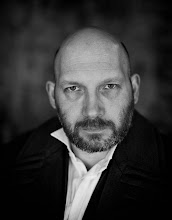"I hate those writers who have been terribly influenced by Lord Kafka or Franz Dunsany -big show offs. Personally I was influenced by guys like Clifford Simak and John W. Campbell Jr... A fellow with science fiction writing ambitions should read science fiction." Isaac Asimov.
I recently re-read the above quotes and it got me thinking about my own reading habits. First of all, as I have said many, many times before, I am an unashamed and unabashed lover of science fiction and fantasy literature (quite a lot of movies and TV stuff too, but let's just stick to books for the moment, shall we?) and it makes up a large part of my literary diet. In the last year I have read (or re-read) books and stories by Joe Abercrombie, Robert Silverberg, M. John Harrison, Clark Ashton Smith, Robert E. Howard, Tanith Lee, Scott Lynch, Stephen King, Philip K. Dick, Karl Edward Wagner, Jack Vance, Peter Brett, Mark Charan Newton, Michael Moorcock, Andrzej Sapkowski, Brian Aldiss and JG Ballard (to mention quite a few) and thoroughly enjoyed them.
Equally I have read (or re-read) works by Joseph Conrad, Voltaire, Malcolm Lowry, Italo Calvino, Gabriel Garcia Marquez, William Shakespeare, T.S Elliot, William Blake, Jean Paul Satre, Virginia Wolff, May Sinclair, Martin Amis, Wells Tower, Dante, Graham Greene, Charles Bukowski, Daniel Defoe and Christopher Isherwood (to name virtually all of them) and gained a huge amount of pleasure from those as well.
As if that wasn't enough I've also read histories of the Crusades, the Greek and Persian Wars, the Peloponnesian Wars and the fanciful studies of Atlantis and Lemuria by William Scott-Elliot (which are a hoot and a half).
I've also read a fair bit of Kafka and Dunsany over the years, too, so I guess you could say that I read a lot and like to keep it varied.
For me, reading science fiction and fantasy is and always has been a pleasure, but I fully understand that a writer can get stymied by following such a path and runs the risk of disappearing up a literary cul de sac. Michael Moorcock makes a good point, particularly if you are more interested in literary growth than straightforward adventure stories, and is a good warning against simply recycling well-worn tropes and plots. But by the same token, though, I agree with the words of Isaac Asimov in that too much of the overtly literary can alienate a reader (or a writer) who is simply looking for entertainment and, of course, if you are not familiar with the tropes and plots of sf there is always the chance that you will recycle them unwittingly (working for weeks or months on that Grandfather Paradox story only to discover that Robert Heinlein did it years ago).
The truth lies somewhere in the middle, I feel. Opinions on what constitutes good science fiction and fantasy vary wildly, even within one person's own judgement - I hugely admire M. John Harrison's Viriconium sequence, for example, but also absolutely adore the work of Philip K. Dick although he was never a literary stylist in that same way that Harrison is. Is one necessarily better than the other? No, of course not.
As readers we take away different things from different writers, regardless of the genre in which they work (given that we can refer to 'literary' fiction as a genre), something that is doubly so as a writer: lessons about structure, point of view, handling the narrative, characterisation etc. I
It's healthy, I feel, for a writer to read both within and outside of his or her chosen genre, adapting techniques to suit their own writing, using literary experimentation when it suits or fits. After all, the world of books is a huge one... why limit yourself?








 Some very kind words about The Song of Tussagaroth and Innsmouth Free Press from Deborah Walker at Skull Salad Reviews where she describes the story as "reminiscent of Clark Ashton Smith". (Wheeeee!)
Some very kind words about The Song of Tussagaroth and Innsmouth Free Press from Deborah Walker at Skull Salad Reviews where she describes the story as "reminiscent of Clark Ashton Smith". (Wheeeee!)